Hydrogen a huge export opportunity for Australia, Alan Finkel says
The former chief scientist says the export opportunity that clean hydrogen presents Australia is ‘almost beyond imagining’.
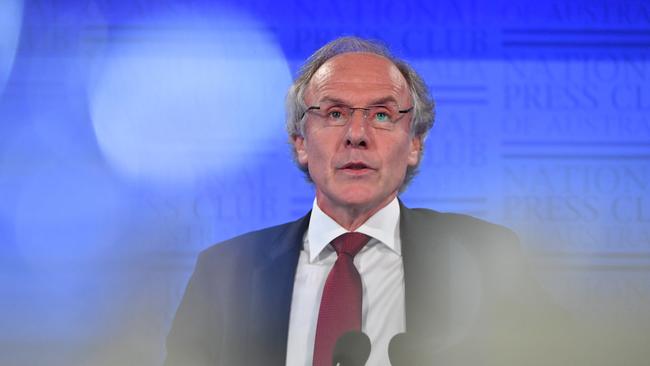
Former chief scientist Alan Finkel says the export opportunity that clean hydrogen presents Australia is “almost beyond imagining” as he backed Scott Morrison’s technology-driven approach to securing the 2050 net-zero emissions target.
With the Prime Minister leaving on Thursday to attend the G20 summit and Glasgow UN climate conference, the government’s special adviser on low-emissions technologies warned Australia would need to reduce its reliance on fossil fuels but that hydrogen presented “an extraordinary export opportunity” that could rival LNG.
The nation’s chief scientist from 2016 to 2020 said the 2050 target would require unlocking priority technologies in hydrogen, ultra-low-cost solar, long-duration energy storage and carbon capture and storage.
“It’s the opportunity to take renewable energy captured in one continent and send it around the world to countries that don’t have enough of their own,” Dr Finkel said. “The scale of that hydrogen export opportunity is almost beyond imagining. But let’s try.
“Imagine a world where Australia, 20 or 30 years in the future, is producing as much hydrogen in energy-equivalent terms as our 2020 LNG exports. We were in 2020 neck and neck with Qatar and the US as an LNG exporter. So not a trivial amount.”
Dr Finkel said the prospect of nuclear power playing a role in achieving a net-zero target was a national conversation worth having.
“If your only focus is on zero greenhouse gas emissions, nuclear is stunningly good … Nuclear has a lot of advantages, but it’s socially unacceptable in Australia,” he said. “There needs to be a discussion to look at where it fits in, take into account the requirements for waste disposal, the cost requirements — and costs would be much lower in future than you’ve seen in the past because of small modular nuclear reactors.”
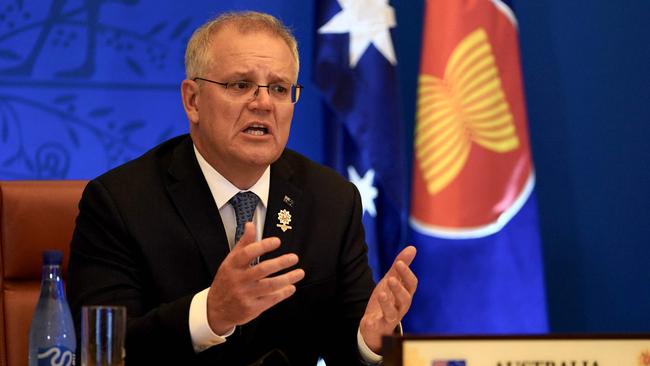
Dr Finkel’s comments came after the Prime Minister ruled out lifting the ban on nuclear power, warning it would achieve nothing while handing Labor a scare campaign with which it could win the next election.
“I’m not about to hand the Labor Party that sort of an opportunity,” Mr Morrison told Sky News on Tuesday night.
“They’re opposed to it. They don’t ever want to consider it. We’ll see what happens down the track. There’ll be a lot of developments in this space that are occurring overseas — small modular reactors, within the next decade, I expect to see them in the United States.”
Mr Morrison rejected accusations his 2050 net-zero plan was too reliant on untested technologies that would require billions of dollars in investment, arguing the criticisms were being made by those who “mustn’t have bought any Apple shares or Microsoft shares”.
“I’ll tell you what: I trust technology far more than I trust governments’ taxes and higher regulation,” he told radio 2GB.
“Technology has always solved this problem. We see it in our lives every single day.”
Speaking in parliament and brandishing an iPhone, Mr Morrison questioned why Labor did “not have confidence that, in the next 30 years ... we will not see technology breakthroughs which will ensure that we’ll be able to close the (technology) gap?”
“If that’s the case, they should never use one of these, because they don’t believe they exist!” he said. “An iPhone would never have existed if it was based on the assumptions of the Leader of the Opposition.”
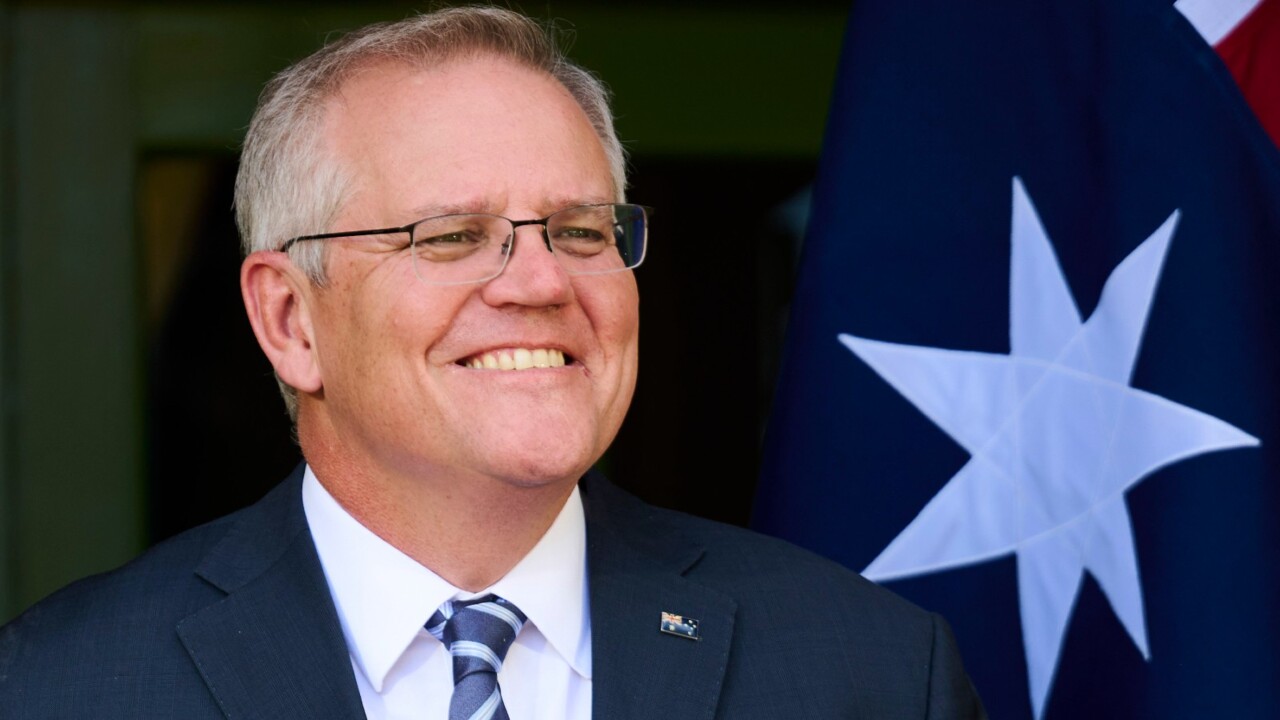
The government faced growing demands on Wednesday to release the economic modelling underpinning its 2050 emissions reduction plan showing Australians would be $2000 better off on average.
Labor used question time to push Mr Morrison about when the public would see the modelling underpinning his 2050 plan. The Prime Minister declared it would “be released in the next few weeks”.
Mr Morrison hit back, saying Labor had produced no plans of their own. “They won’t even tell us what their 2030 target is before Glasgow,” he said. “I don’t know what they are waiting for.”
Josh Frydenberg told parliament Treasury had been in “close contact” with DISER throughout the modelling process and had provided advice about the risk premium of not joining the global consensus on net zero by 2050.
The political contest over Australia’s 2030 climate targets also escalated, with Labor condemning city-based Liberal MPs for voting against a debate on legislation proposed by crossbench MP Zali Steggall that would have locked Australia into reducing emissions by 60 per cent by the end of the decade.
Ms Steggall’s bill would have enshrined a target of net zero by 2050 in law while “aiming to reduce net accounting emissions by 60 per cent on 2005 levels by 2030” — well above the government’s pledge to lower emissions by between 26 and 28 per cent on 2005 levels and more ambitious than Bill Shorten’s 2019 election target of 45 per cent.
Mr Bowen singled out the “so-called modern Liberals” who voted against the bill, including Dave Sharma, Josh Frydenberg, Tim Wilson, Trent Zimmerman, Katie Allen and Jason Falinski.
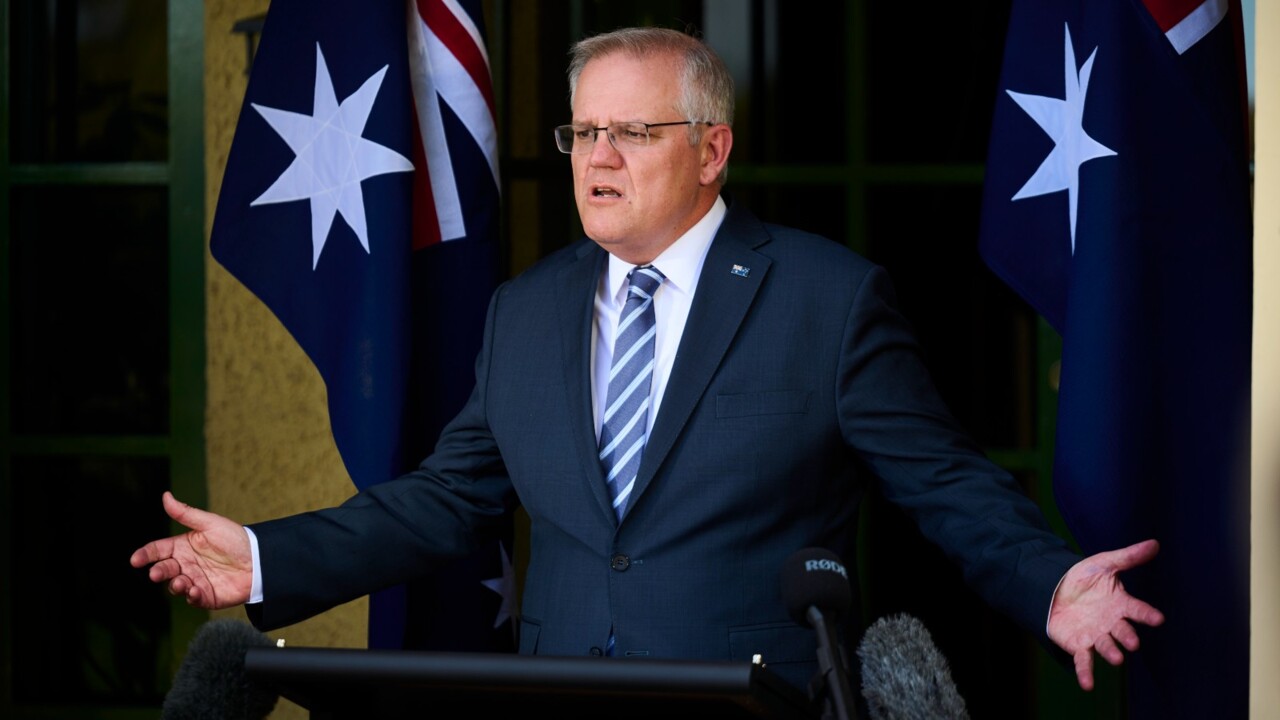
Labor’s caucus supported bringing on the bill for a debate in the House of Representatives, which requires the support of a majority of MPs in the chamber, but has not come to a position over whether it supports the contents of Ms Steggall’s proposal.
In parliament, Mr Bowen said he did not agree “with every single thing” in Ms Steggall’s legislation. “If it came on for a vote, we would have the chance to move amendments, to discuss the situation and to actually pass a law with the support of the parliament,” Mr Bowen said.
But with Coalition MPs hoping Labor sets high 2030 targets ahead of the election, Energy Minister Angus Taylor said the vote showed Anthony Albanese endorsed Ms Steggall’s proposals.
“Time after time, they have refused to tell Australians what their 2030 target is,” Mr Taylor told parliament.
“Today, they came into this place and they voted for a 60 per cent emissions reduction target. (The Opposition Leader) needs to explain which industries will be destroyed, which cattle have got to go, which mines have got to be closed, which industry is going to disappear, which regions are going to be destroyed.”
Labor has vowed to release its 2030 target after the Glasgow summit, with MPs divided on whether the party should adopt a pragmatic target in line with the government’s projection of achieving a 35 per cent cut or go to the election with a goal of more than 40 per cent.
One Labor MP expressed confidence Mr Albanese would veto any push for a 2030 target that would expose the party to yet another fear campaign on the issue.
Dr Finkel backed in Mr Morrison’s technology-driven approach to securing the 2050 target and argued it did not “dramatically change what we’re doing”.



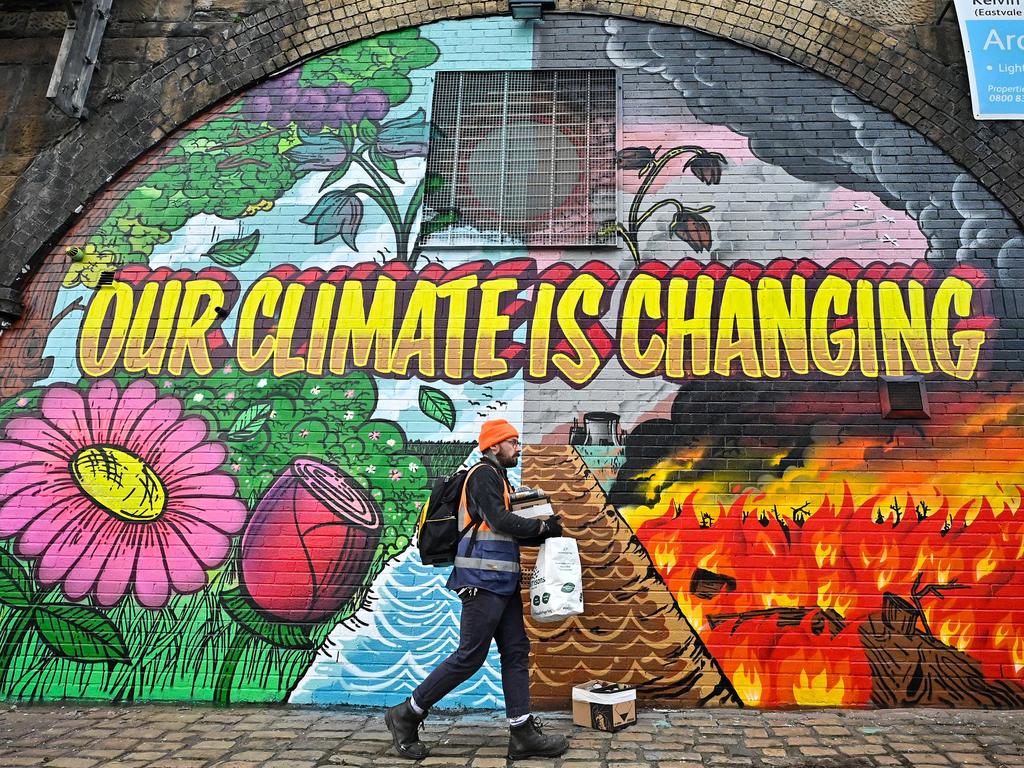
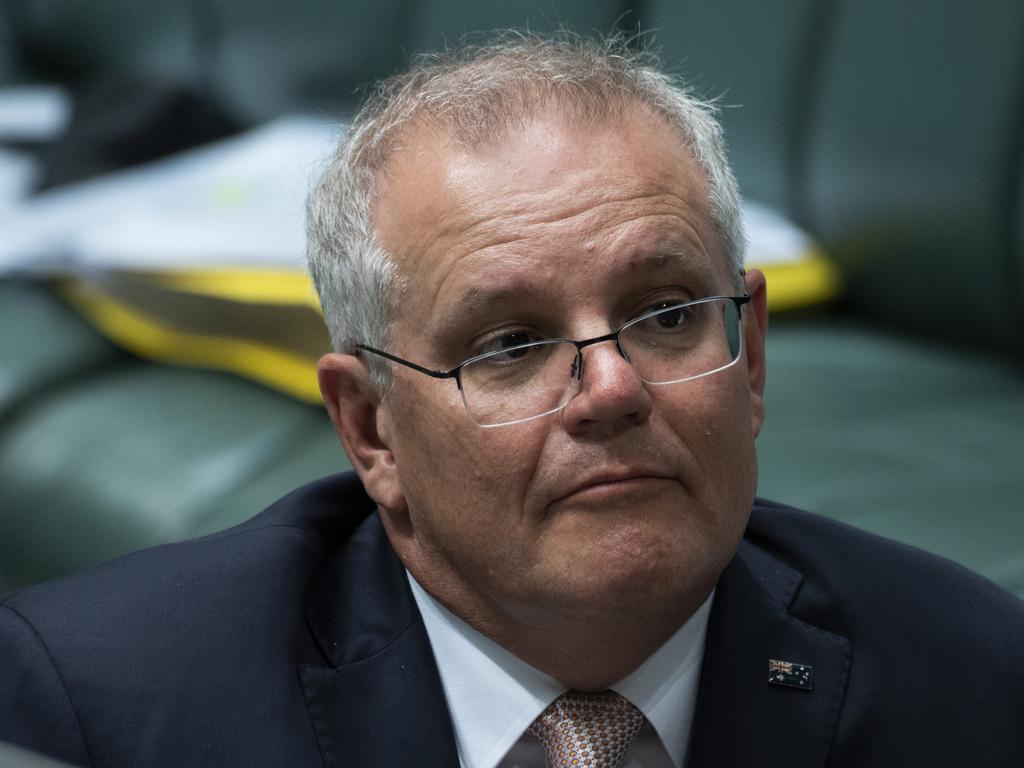

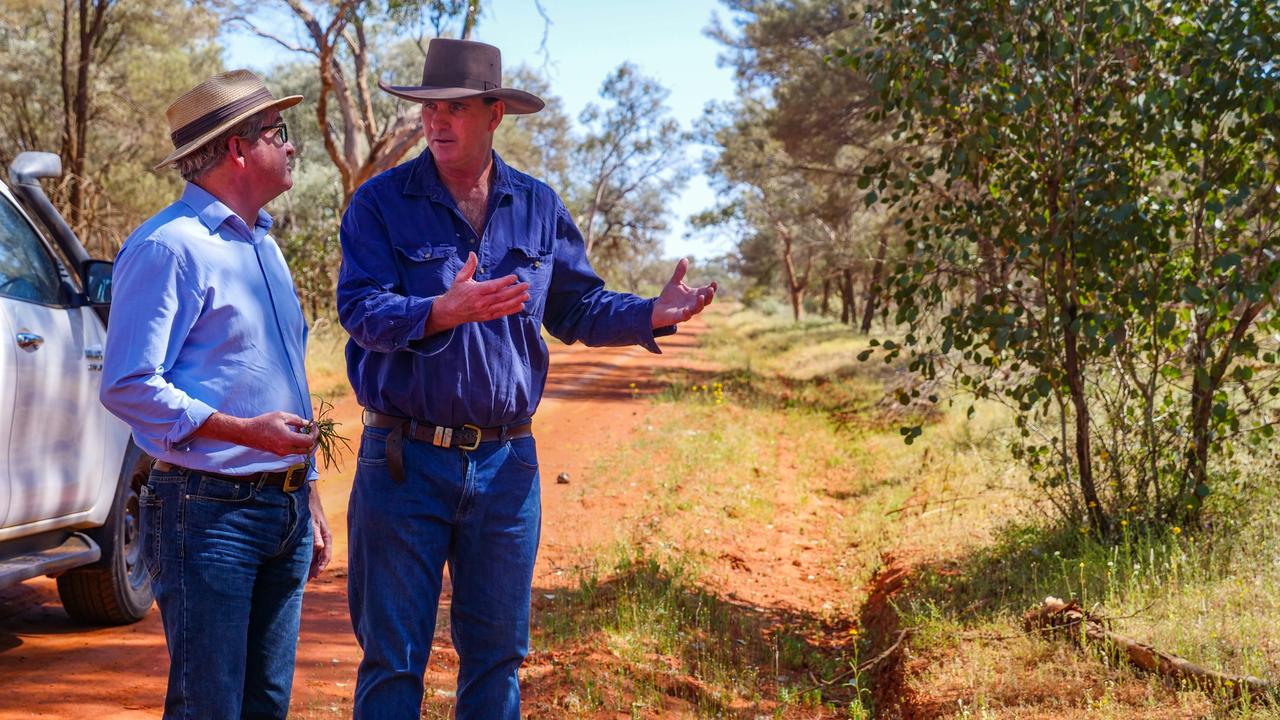

To join the conversation, please log in. Don't have an account? Register
Join the conversation, you are commenting as Logout